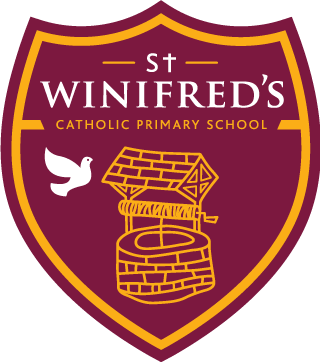Modern Foreign Languages - Spanish
Statement of Intent
Intent
At St Winifred’s Catholic Primary School, the intention of our MFL curriculum is to foster children’s interest in learning other languages in a way that is enjoyable and stimulating.
Implementation
All Key Stage 2 children take part in weekly Spanish lessons led by a qualified primary school teacher, who is a native Spanish speaker. We provide a high-quality education in modern language teaching based on embedding essential skills of listening, speaking, reading and writing delivered through a lens of cultural understanding.
We use ‘La Jolie Ronde’ Spanish scheme of work to support the progression of knowledge and skills in Spanish.
Impact
By the end of Key Stage 2 all children have acquired an understanding of both spoken and written Spanish and they will have the confidence to speak in Spanish with others. Furthermore, through their learning of Spanish culture, they will be able to appreciate and celebrate differences between people, nations and societies, as well as the different cultures within our school community.
Our curriculum for each year group:
Modern Foreign Language – Spanish Curriculum
Modern Foreign Language Policy
Rationale
The study of Languages prepares pupils to participate in a rapidly changing world in which work and other activities are increasingly carried out in languages other than English. Pupils use languages to communicate information responsibly and creatively. They learn how to use languages to enable access to ideas and experiences from a wide range of people, communities and cultures. In addition, understanding a modern foreign language increases a child’s understanding of their own language. The process of learning a foreign language reinforces fluency and understanding of grammar, syntax, sentence structure and verbal precision. Increased capability in the use of languages can also promote initiative and independent learning and encourages diversity within society.
All children from Years 3 to 6 will be taught Spanish.
Aims
Through our teaching of Languages, we aim to:
- Ensure every child has the opportunity throughout Key Stage 2 to study a foreign language and develop their interest in the culture of other nations
- Ensure pupils’ learning is enriched in a broad curriculum to which languages contribute
- Ensure pupils have access to high quality teaching and learning opportunities led by native speakers
- Provide language teaching informed by Listening, Speaking, Reading, Writing and Cultural Understanding.
Curriculum organisation
All pupils learn languages for approximately 30 minutes per week.
Curriculum management
Lessons are led by a qualified primary school teacher who is a native Spanish speaker. Plans are shared with class teachers on a weekly basis.
Approaches to language teaching – Use of IT, Exposure to native speakers
We believe that pupils learn more effectively if they are enjoying what they are doing. IT is used across the school to motivate pupils and to support teachers. The school uses the local community and other links to expose pupils to native speakers, as well as IT.
Embedding languages in the curriculum and exploiting opportunities
We believe pupils will learn languages more effectively by having frequent exposure to them. Opportunities for speaking another language should be exploited, be it in the playground or in the classroom. All staff in the school are responsible for ensuring this.
Recording, assessment and reporting
As the teacher works through the scheme of work they will record progress against the short-focused topics where appropriate and assess the children’s progress in the language. This assessment will be used to support teaching and learning
Inclusion – SEN, G&T, Ethnicity, Gender
All pupils, regardless of race or gender, shall have the opportunity to develop Languages capability. We will promote equal opportunities and fair distribution of Languages resources. Children with other languages at home are encouraged to use them for educational benefit and parents are offered advice about what is appropriate.
Monitoring and Review
Monitoring is carried out by SLT in the following ways:
- Informal discussion with staff and pupils
- Classroom observation

 St
Winifred's Primary School
St
Winifred's Primary School

